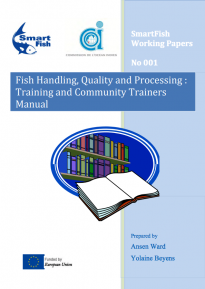Skills and Knowledge
Skills and knowledge are required to be able to assess and monitor food loss and waste (FLW) and to manage losses (e.g. implement solutions). Skills and knowledge and skills are needed to prevent losses through improving quality by using better handling and processing practices, business management, and efficient marketing.
The style of training and awareness raising, and the materials and methods used, all have a bearing on how messages are received and used by beneficiaries. Training is an integral part of commercial operations. Staff often must have a specific level of education or training to fulfil the requirements for a particular job. Regular training to upgrade skills and knowledge, and keep abreast of changes in legislation and standards, is important.
Capacity development needs to be gender sensitive. While training and education to increase knowledge and skills is part of the solution to FLW, it is valuable only when the beneficiary is able to apply the new knowledge and skills. For example, training fishers of the benefits of using ice properly will not have an impact if there is no ice or ice boxes available. This may in turn be caused by a lack of access to finance to invest in technology.
Skills and knowledge are not just for fishers, processors and traders. It is also important for consumers. Encouraging consumers to demand better quality and higher standards can be an important economic driver to change and to achieving better practices upstream in the value chain. Encouraging consumers to accept products which are nutritionally beneficial and meet required food safety standards, but which may be visually different is also important for waste reduction at retail level. Consumer awareness of food preservation, preparation and waste avoidance is also important.
Key Publications
Fishing Handling, Quality and Processing: Training and Community Trainers Manual This document includes information related to food law implementation. | |
Quality and Quality Changes in Fresh Fish The book describes fundamentals in fish biology, chemical composition of fish, and post mortem changes, with a view to explain the rationale for optimal catch handling procedures and obtaining maximum shelf life. |



